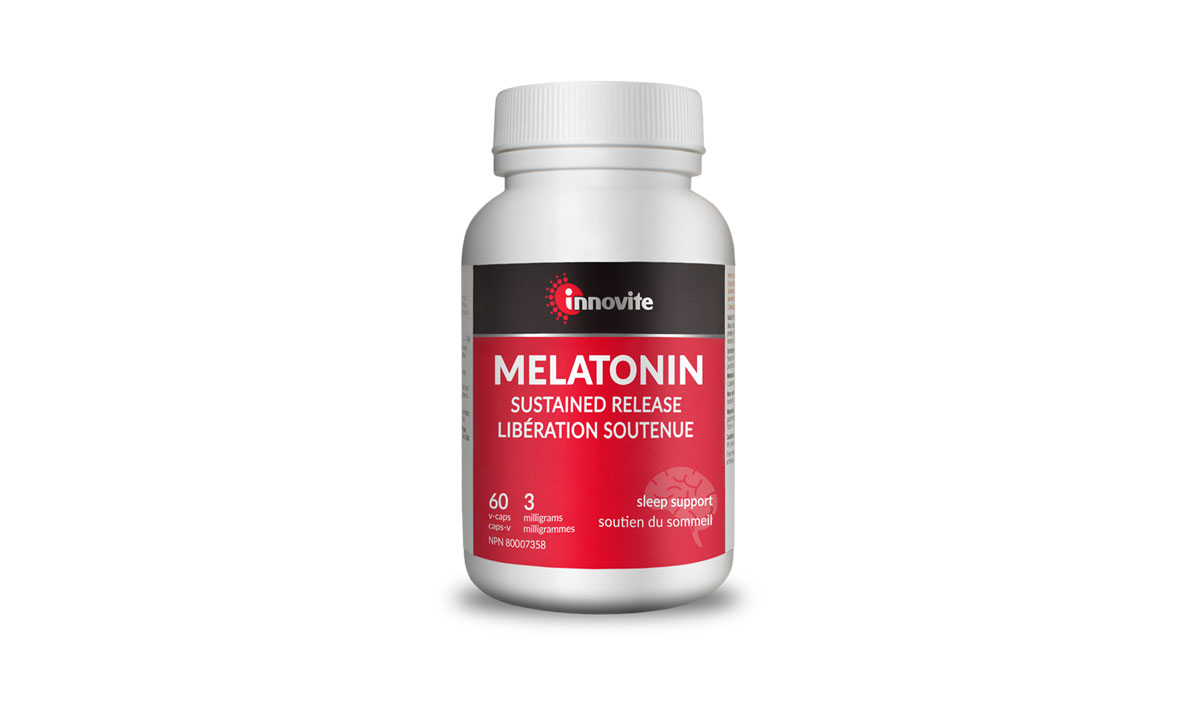Does sleep have an impact on fertility?

Our bodies need sleep to survive. That might not sound surprising if you’ve ever woken up after a restless night and yawned your way through the following day, but beyond impacting our energy levels, a lack of sleep can have other detrimental impacts on our health.
During sleep, our bodies rest, restore, and regulate important hormones, including those that support our reproductive health and fertility. So, when you’re not getting the sleep your body needs, it can affect your fertility as well.
The link between sleep and reproductive health
Whether it’s staying up for a night shift at work, or travelling to different time zones, we’ve all experienced late nights from time to time. These situations can disrupt our circadian rhythm, ultimately affecting how much melatonin our bodies produce. More specifically, not getting enough sleep means your body is producing low levels of melatonin, our body’s primary sleep hormone.
That can raise concern for your fertility. How? Well, what if we told you that the same part of the brain that regulates melatonin levels also controls the release of reproductive hormones in both men and women? It’s true.
As a result, lack of sleep disrupts menstrual cycles by delaying the release of the luteinizing hormone (LH). Since LH is what triggers ovulation, this then delays ovulation. Ovulation occurs when a mature egg is released from the ovary, ready to be fertilized. And when ovulation is delayed, it decreases your chances of conceiving.
Similarly, lack of sleep also slows down the sperm maturation process. This process allows spermatozoa (male reproductive cells) to gain the ability to fertilize an egg while travelling through a female’s reproductive system. When sperm maturation is slowed down, sperm health is compromised. This decreases sperm count and motility, leading to sperm that is less likely to fertilize eggs.
What are the benefits of taking melatonin for fertility?
So, if having low melatonin can interfere with fertility, does that mean taking melatonin supplements can help you? Possibly. Let’s dive a little deeper.
Melatonin & egg quality
Taking melatonin supplements has been proven to improve egg quality. Studies show that melatonin works as an antioxidant to help reverse oxidative damage on oocytes (female reproductive cells). Its antioxidant capabilities protect the mitochondria and DNA within cells by neutralizing harmful substances called free radicals that cause oxidative damage. This improves egg quality and as a result increases the chances of getting pregnant.
Melatonin, sperm quality and sperm motility
Melatonin’s antioxidant properties ring true for the protection of sperm from oxidative stress as well. One study showed that oxidative stress decreases sperm motility and viability. But when participants supplemented with melatonin, their sperm was protected from the damage.
Melatonin & IVF
In vitro fertilization (IVF) is a process that helps those having a harder time with conceiving by collecting eggs and sperm to fertilize them inside a lab and later place inside a woman’s uterus. Research shows that supplementation of melatonin can help increase your chances of implantation with IVF. By reducing the amount of oxidative stress on sperm and egg, melatonin keeps reproductive cells in great health. As a result, this leads to higher fertilization rates during IVF and enhances fertility outcomes.
Next steps you can take to support melatonin production
How can you make sure you’re getting enough melatonin? There are a few different ways.
Practice good sleeping habits
Maintaining optimal levels of melatonin all comes down to developing healthy sleeping patterns. This starts with limiting screen time before going to bed. The blue light from screens can confuse your sleep-wake cycle and make your body believe that it’s actually time to stay awake, ultimately decreasing your melatonin levels.
Additionally, avoiding eating close to your bedtime is a healthy sleep habit to follow. Eating right before bed causes your body to work hard and digest the food you’ve eaten, when it should be resting instead. This makes it harder for you to fall asleep. The same goes for caffeine. If you find yourself getting a craving for coffee after 2pm, try drinking herbal tea or sparkling water instead.
Your sleeping environment plays an important role in the quality of your sleep as well. Generally, the ideal bedroom temperature for adults is around 18.3 degrees Celsius. A bedroom that’s too warm can make you feel restless and prevent you from well-rested sleep.
Eat a nutritious diet

While it’s not recommended that you eat right before bed, you still need to eat a nutritious and satisfying dinner, filled with protein and veggies. You can even try adding foods that are rich in melatonin to your meal to help induce sleepiness. Try including pistachios, tart cherries, and fatty fishes.
Take a melatonin supplement
Sometimes, falling asleep and staying asleep throughout the night can still be difficult despite all your efforts. That’s where a melatonin supplement can help. Innovite’s Sustained-Release Melatonin can help restore your melatonin levels and repair your body’s circadian rhythm.
Sleeping soundly and deeply is very important for our bodies to rest and feel rejuvenated the next day. Many vital processes, including those that support fertility happen while we’re asleep. So make sure you’re supporting your body’s melatonin production with healthy sleep patterns, a well-rounded diet, and supplementation.
Sources:







